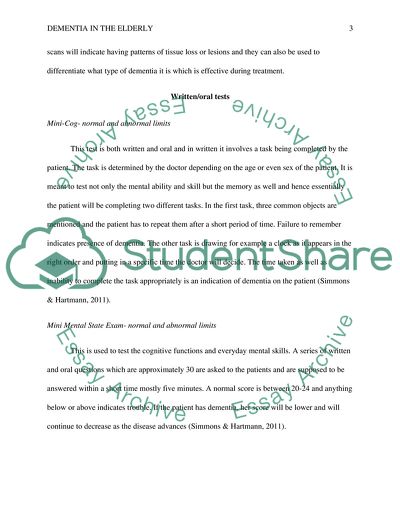Dementia in the Elderly Assignment Example | Topics and Well Written Essays - 500 words. https://studentshare.org/medical-science/1868316-dementia-in-the-elderly
Dementia in the Elderly Assignment Example | Topics and Well Written Essays - 500 Words. https://studentshare.org/medical-science/1868316-dementia-in-the-elderly.


